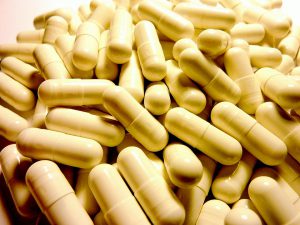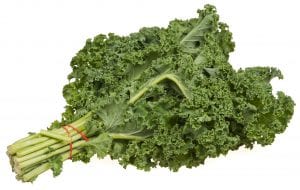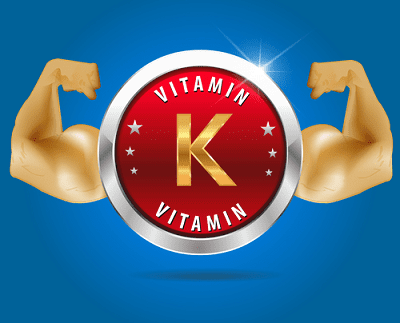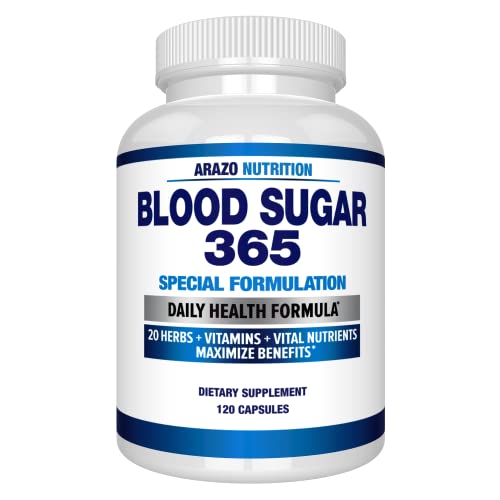Vitamin K for Diabetes
Vitamin K for Diabetes is very beneficial. So what is vitamin K good for and where does it come from? It’s not a vitamin you always hear a lot about and may seem to be neglected, but like any other vitamin, it’s important for your body and your blood glucose. Vitamin K is not just one substance but it’s a group of related substances. And it’s good news for diabetics.

There are actually two types and the first type of vitamin K which is also referred to as vitamin K1, is produced by plants and is known as “phylloquinones.” Just about all of the vitamin K that you get comes from these plants. The second type of vitamin K which is also known as vitamin K2, is produced by bacteria. But let’s concentrate on the plants seeing as that they are the majority of our source of vitamin K. Throughout my article I will be referring to vitamin K just as “K” sometimes so you know.
Vitamin K and its role
K’s role is to balance the ability of blood clotting in your body. By being able to provide this blood clotting when you experience any injury, your body is then able to prevent excess bleeding. So it keeps the clotting under control assures that there will not be any injury that prevents a blood clot from the blocking of a blood vessel.
The other roles that “K” are involved in, and these are very crucial for your health, are working to help protect your heart by preventing the calcium build up in your arteries and supporting the health of your bones too. You don’t want a vitamin K deficiency because it puts you at much greater risk for hardening of your arteries. So keep up your intake of vitamin K because it’s necessary for your fight against Type 2 diabetes.
Precautions
It is crucial that you speak to your physician about vitamin K. The main reason for this is that because it does have an effect on blood clotting, it may clash with certain blood thinning medications that you may be currently taking such as: aspirin, xarelto, warfarin, and plavix. Discuss everything with your physician.
There may be the possibilities for drugs interfering such as drugs used to prevent blockages after a stent has been inserted, prevention of a heart attack, and a stroke. Your doctor will know what medications will interact with vitamin K. Let them guide you and prescribe what you should and shouldn’t take. It’s always better to be safe than sorry I always say.
Vitamin K and diabetes
If you are one of the fortunate people to be getting enough vitamin K, then you’re lessening your risk of developing type 2 diabetes than those folks who don’t get enough. It’s rather frightening to think that approximately 10% of Adults in the United States have type 2 diabetes. It’s time to get those numbers down and fast! Vitamin K can help with that.
The biggest risks for type 2 diabetes are obesity, older age, having a a family history of type 2 diabetes, and your race. Hispanic, Native Americans, and blacks are more at risk than Caucasian people are.
Foods that are rich in vitamin K
Kale


Kale is about the top food for vitamin K. It is without a doubt a superfood! It also contains and is very rich in potassium, folate, calcium, along with other minerals and vitamins. It actually has even more nutritional value than spinach. Kale may decrease blood pressure, lower your risk of cancer, help to prevent the development of asthma, and controlling your blood sugar levels. Kale is an anti-diabetic food. Get that blood sugar down!
Spinach
Spinach is my favorite vegetable! It is extremely healthy and while spinach is loaded with vitamin K, it also contains vitamins B, E, and A along with folate, magnesium, and iron. Raw spinach has only one third of vitamin K as cooked spinach has, but you don’t need that much anyway. You don’t want to overdo it. Popeye must have known this!
Brussels sprouts
Brussels sprouts are a member of the cabbage family. They are packed with vitamin K and vitamin C. They are also high in antioxidants which aid in the prevention of damage of the cells in your body.
Brussels sprouts help to support your bone and the health of your blood, and your immune system. In addition to vitamins K and C, they also contain minerals, fiber, and other vitamins. Eating them on a regular basis may also help to prevent some cancers. This alone makes eating Brussels sprouts with vitamin K worth it.
Lettuce
Lettuce is most likely the best known and popular in the American diets as a source of vitamin K. While you can obviously purchase lettuce at grocery stores, it’s available in restaurants and in salad bars, it’s always the center of attention, so to speak. While romaine has more nutrition than iceberg lettuce, romaine does have more “K” too. I always choose romaine over iceberg lettuce.
Broccoli
Broccoli is another vegetable in the cabbage family and you can eat it by various methods such as steaming, cooking, or eating raw. It is very rich on minerals and nutrients and contains a high amount of vitamin K. You just want to be careful about levels of high “K” if you are on blood thinners such as warfarin.
Parsley
You want to talk about vitamin K? Parsley has over 500% of the daily recommended dosage. It also may prevent Alzheimer’s disease and aid in promoting bone strength. It also is high in vitamin C and vitamin A which can help prevent macular degeneration and cataracts.
Mustard greens
Mustard greens are excellent sources of minerals, nutrients, and vitamins. They contain potassium, calcium, selenium, proteins, folates, magnesium, maganese, and iron. Mustard greens are rich in vitamins A,C, and K. Vitamin K again promotes bone health and works to limit any damage to the brain.
Collard greens

Collard greens happen to be low in calories and provide high amounts of minerals and vitamins for your body. They are high in vitamin K and vitamin A. It contains over 1000% of your daily requirement of “K” and over 300% of vitamin A.
Collard greens also provide 50% of vitamin C, twenty seven percent of calcium, forty percent of manganese, and forty percent of folate. They actually help to lower your cholesterol and better than any other cruciferous vegetable including broccoli, kale, and Brussels sprouts.
The benefits of vitamin K
Osteoporosis
Vitamin K1 and K2 ( is important with preventing bone loss. And that means fighting osteoporosis because that is your bone density being reduced. It generally occurs in many women who are past menopause and are over the age of fifty. Unfortunately, it will advance without knowing for years.
At some point a deformity of the spine appears from the bone loss and you can also experience pain and fractures as well. The most important thing to do whether you’re a man or a woman to avoid osteoporosis is to make sure that you do get the right amounts of “K.”
All of the foods mentioned previously, spinach, broccoli, lettuce, collard greens, and Brussels sprouts can help you keep up with the vitamin K that you need.
Internal bleeding
Vitamin K will decrease the chance of bleeding from any poor absorption of nutrients, jaundice, complications from a mixture of aspirin and antibiotics, and bleeding in the liver.
If your level of vitamin K is constantly low, then you have a higher chance of contracting gastro diseases such as: Crohn’s disease, obstructions, and colitis.
Immune system
Your immune system is the lifeblood of your body. It protects you against disease and foreign invaders and if your immune system isn’t strong, then neither are you. It’s that simple. Vitamin K as well as other vitamins help to boost and protect your immune system.
So make sure that you do get and have checked you “K” levels. The foods I mentioned previously and also coco-biotic and milk kefir are two additional foods that can help you achieve your need levels.
Heart disease

There is definitely a connection between a lower risk of heart disease and a higher consumption of vitamin K2. Heart disease can be aided when calcium cannot be formed in your arteries and vitamin K2 is responsible for blocking this calcium.
Folks who have the highest intake of this vitamin have the lowest risk for heart disease. You may want to take a multi-vitamin with a K2 amount of 70-90 mcg which should be sufficient as long as your bone density levels are normal. But check with your doctor for the right amounts to be certain.
The brain
Your brain uses vitamin K and K2 is the principal form that it uses. It’s been studied that Alzheimer’s patients have consumed much less vitamin K2 than those who consumed higher amounts.
Risk of dying
A study done in Mediterranean people at higher cardiovascular disease levels found that an increase in “K” is associated with less of a risk of death from all causes.
Insulin resistance
A study done in young men for four weeks with vitamin K2 resulted in increased insulin sensitivity.
Oral health
Vitamin K is important and vital for our oral health. It is very beneficial for the prevention of cavities and crucial for the remineralization of your teeth.
Anti-aging and the health of your skin
Vitamin K2 is helpful for aging and the health of your skin. It aids in the calcification of your veins, soft tissue, and your arteries. It will prevent excess calcium in the elastin of your skin and thus preventing wrinkles and helping to keep your skin elastic.
Combats cancer
There has been some research done to find that vitamin K may help in fighting a reappearance of cancer of the liver and a decrease in the risk of prostate cancer. Keep up your “K” levels anyway.
Pregnancy aid
Women who are pregnant and often suffering from nausea and vomiting can often be deficient in vitamin K. Once you get it into your system it should help in a short period of time.(up to 72 hours or less). It will also help in taking K for milder symptoms the next time or times.
The connection between vitamin D and vitamin K
While vitamin D is about one of the most important vitamins for you, for it to function properly, it requires enough amounts of “K” to aid in carrying this out. These two powerhouse vitamins work well together to help make your bones stronger and help them develop health wise.
Final thoughts
Vitamin K for Diabetes is an excellent choice as far as vitamins go. While vitamin K is not talked about as much as many of the other vitamins, it’s extremely important for your health and you want to remember the connection between vitamin K and diabetes.
I believe that knowledge is power and that the more we know about our health, the better off we are. My goal here was to help you understand more about vitamin K but also to present any connections with diabetes and lowering your blood sugar as well.
While vitamin K may help with blood glucose levels, it may not lower yours enough and it might require something that will help you more. This is what can help you the best!
If you have any questions or would like to leave any comments, please feel free to do so below. I would appreciate it. Thank you for reading! Happy and healthy!
- Amazon Kindle Edition
- Rothchild, Sascha (Author)
- English (Publication Language)
- 336 Pages - 04/19/2022 (Publication Date) - G.P. Putnam's Sons (Publisher)
- ✅ QUICK AND EASY TO USE: Care Touch blood sugar test kit delivers results in only 5 seconds with just a 0.5µL blood sample. There is no programming needed since our blood sugar monitor kit automatically recognizes batch codes encrypted on Care Touch glucose test strips. Our state-of-the-art glucometer kit with strips and lancets includes single-touch strip ejection, so you can hygienically remove used diabetic test strips.
- ✅ EASY DIABETIC MONITORING: The blood sugar monitor kit with strips is capable of saving up to 300 readings. The blood glucose test kit also provides a continuous 14-day average of your readings, making glucose monitoring easy for you and your healthcare provider.
- ✅ PORTABLE AND HASSLE-FREE: The diabetic testing kit comes with a handy glucometer case, which means you can check your blood sugar level at home or anywhere else while staying organized. The 10-depth lancing device and lancets will help make blood sugar testing almost painless and hassle-free.
- ✅ COMPLETE DIABETIC SET: The glucose meter kit with strips and lancets includes: (1) Care Touch Blood Sugar Meter, (100) Blood Glucose Test Strips for diabetes, (1) Lancing Device, (100) Lancets for diabetes testing, (1) 3 Volt Lithium Battery, (1) Glucose meter case for your blood sugar tester and diabetic supplies
- ✅ WE CARE BECAUSE YOU CARE: You care about your health, and we care about you. Care Touch is committed to providing the best quality blood glucose monitoring systems. Our care doesn’t end when your sugar tester diabetes kit arrives at your door. We’re fully dedicated to your satisfaction. If you have any questions or concerns about your glucose monitor kit with strips and lancets - contact us at any time.
- Amazon Prime Video (Video on Demand)
- English (Playback Language)
- English (Subtitle)
- PUREHEALTH RESEARCH - Blood Sugar Formula 3 Bottles
- MANUFACTURED in the USA! 365-DAY SATISFACTION GUARANTEED!
- A DOCTOR-APPROVED NATURAL FORMULA. Seventeen potent ingredients, each scientifically proven to have a significant effect at helping balance your glucose levels, improve glucose sensitivity, protect delicate cells from free radicals, and energy
- HIGH POTENCY. PureHealth Research experts scientifically enhance CHROMIUM with the Vitamin C, E, Mulberry Leaf, Bitter Melon, Cinnamon, L-Taurine, Berberin and other ingredients which are proven to help you support healthy blood glucose levels
- ONE CAPSULE DAILY, THREE BENEFITS: supports healthy sugar and carb absorption, supports insulin levels, supports cardiovascular health
- Scientifically formulated; great care was put into combining just the right amount of 20 different ingredients into a premium formula designed to support healthy blood sugar levels
- High potency support for 365 days a year; the unique combination in this blend is crafted to help support healthy glucose absorption and glucose production by your body; contains Gymnema, Alpha Lipoic Acid, Yarrow, Licorice, Cayenne, Banaba, Guggul, Bitter Melon, Juniper Berry, White Mulberry, L-Taurine & more
- One capsule twice a day, five benefits; (1) supports normal blood sugar levels; (2) supports weight control and energy; (3) supports healthy sugar and carb absorption; (4) supports insulin levels; (5) supports heart health; daily support for healthy blood glucose levels, 365 days a year
- Reliable; made in a GMP certified facility in America and third party safety tested for purity
- Great value for money; 120 vegetarian capsules for a 60 days supply
Last update on 2022-06-23 / Affiliate links / Images from Amazon Product Advertising API









Wow, I never knew the importance of vitamin K. It kind of gets put on the back burner as vitamins A, B, C & D get most of the attention.
I’ll be sure to share this post and help inform others of the importance of getting vitamin K into your system.
Every vitamin is important. It’s just that some are given more attention than others are.
Vitamins are essential to our overall well being. Vitamin K offers many health benefits and also helps with diabetes.
I always find it helpful to let people know which foods are high in a particular vitamin. I now look to incorporate more vitamin K into my diet with these foods. Thanks for your comments!
My mum is currently diabetic and I am looking for easy ways to help her with this. I have come across vitamin K before and like you mentioned it does affect certain medications. I think she can have it but in small doses. I personally love kale and spinach so it is great for me.
I hope that you refer your mum to my website here because my main goal is to help folks lower their blood sugar naturally. But always be careful with medications you are taking. It should be discussed with the doctor.
Vitamin K can be found in the foods listed here. I’m with you as far as the kale and spinach. Love them! Time to get vitamin K in our diets along with the other vitamins! Thanks!
Cheers!
~Rob
Hi, Rob,
Awesome article, I’ve found it very interesting!
To be honest, I’ve never heard about the vitamin K until now. I am glad to read this article because it is crucial to know about all the vitamins our body needs. I already take vitamin D, and it’s good to know that D and K go hand in hand! I think I will do a checkup to make sure I don’t have a lack of vitamin K:). However, the list of vegetables you have provided is of good help!
I love Brussel Sprouts and spinach, so that’s a good start!
I don’t believe that many people are familiar with vitamin K. It’s important to know what benefits it offers. And vitamin D is much more recognized by folks and they should getting both and have them working together for you.
Yes, I listed the most important foods with vitamin K content. Let’s all start checking our levels and get them where they can benefit us the most.
Thanks for your comments Daniella!
Hi Rob! I really enjoyed reading through your article. It’s really great that you’re increasing awareness about Vitamin K, especially since a lot of the other vitamins get more attention like A, C, and D.
I’m a pathology resident and one of the first things we check when working up a patient with abnormal coagulation labs is vitamin K. It helps with our workup because when we recheck the coagulation labs, if the numbers do not correct, then we know there is another underlying cause behind the coagulopathy. If it does correct, then BINGO! It means vitamin K was the culprit.
Hey Kent! It looks like you are right on top of the vitamin K issue. Most folks don’t know or care about vitamin K, but it is important as you know. Every vitamin is necessary but I thought it would be beneficial to know why vitamin K is along with the other talked about vitamins. Glad you’re on the job with the labs and keeping a check on it! Thanks for your comments!
Cheers!
~Rob